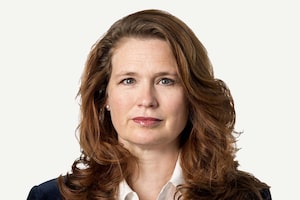Good morning. Wendy Cox in Vancouver this morning.
The day after B.C.’s finance minister introduced the budget the NDP will campaign on in this year’s election, Premier David Eby sounded like he was trying to manage expectations on perhaps the thorniest and most prominent issue facing his government.
“We’re leaving no stone unturned in terms of building the housing that we need,” the Premier said in a speech at the Greater Vancouver Board of Trade on Friday.
“But there’s a basic math challenge that we’re facing here in the province, which is dramatic population growth and the housing supply is not keeping up with it.”
As Frances Bula wrote this weekend, British Columbia’s NDP government has poured billions of dollars into creating new homes as part of its effort to improve the affordability of housing.
The budget included a few more measures: A tax on people who speculate on residential real estate by buying and then selling within two years. For some renters, 2024 will be the first year they can claim an income-tested tax rebate, amounting to $400. The rebate was first proposed by former premier John Horgan in 2017.
But despite major policy changes announced in the last several months and huge amounts of money promised this year and in previous years on housing – some $5.2-billion since the New Democrats formed government in 2017 – progress towards more homes at more affordable prices and rents has been slow and barely visible.
In 2018, then-premier Horgan promised 114,000 new affordable homes would be built within 10 years. The new housing units were supposed to be aimed at students, singles, seniors and families. They were to include a range of different economic models, from supportive housing to market rentals.
But the province has a long way to go before it meets that goal. From 2018 until the end of 2023, provincial investments and policies had resulted in the completion of 47,695 affordable homes. There are another 17,968 under construction, the B.C. Ministry of Housing said in a statement. Another 12,255 units are in their planning stages, the statement said.
The new homes have been slow to materialize for many reasons.
Slow approval processes in some cities have hung up some projects, including snags with meeting the affordability rules of different funding agencies. Frances pointed to two, encompassing 242 units, that were approved six years ago and are now under construction.
High interest rates and construction costs have prompted some developers to put a pause on their projects.
“Interest rates are what is hanging over the housing market,” said Marc Lee, an economist at the Canadian Centre for Policy Alternatives. “When you factor in all the mortgage renewals at higher rates, that’s 2 per cent of GDP. That’s a lot of headwind.”
Other developers are slow-walking already-approved projects in the area around Vancouver’s future Broadway subway, and near the city’s transit hubs, because of policy changes that may now allow them to build more densely. Some are considering applying for larger buildings.
And a labour shortage is also having an impact. Bill Ferreira, executive director of BuildForce Canada, a national industry group that tracks construction trends, said he is hearing from contractors all around the province that they aren’t taking on new jobs because they aren’t sure they can find the workers needed to complete the work on time.
Still, data show that British Columbia had about 50,000 housing starts in 2023, the highest in at least a decade and a tally Premier Eby is sure to campaign hard on.
And while opposition politicians are generally loathe to release any planks in their election platform until closer to voting day, BC United Party Leader Kevin Falcon has indicated housing will be a key focus for a government led by him.
He pledged a new rent-to-own program that would require developers of new housing to set aside up to 15 per cent of homes in participating projects for first-time buyers. Eligible participants would live in their new homes, paying market rent for three years, and then those payments would be converted into down payments.
Other elements of the BC United plan are similar to the NDP’s, but broader. BC United would eliminate the property transfer tax for first-time buyers on properties valued up to $1-million – a higher threshold than the one outlined by the NDP in Thursday’s budget.
This is the weekly Western Canada newsletter written by B.C. Editor Wendy Cox and Alberta Bureau Chief Mark Iype. If you’re reading this on the web, or it was forwarded to you from someone else, you can sign up for it and all Globe newsletters here.
 Wendy Cox
Wendy Cox